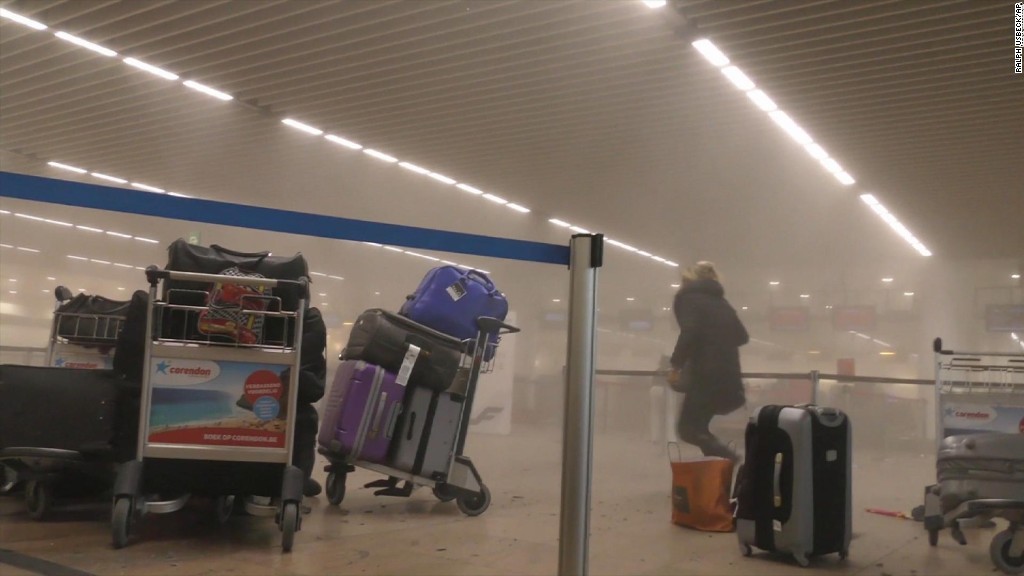
Belgium is in mourning and its main international airport remains closed after Tuesday's deadly terror attack.
But transport links in Brussels -- Europe's unofficial capital -- are working again, and the city is going about its business.
Experience shows countries can bounce back fast, even if travel and tourism declines in the immediate aftermath, and business and consumer confidence suffers a temporary knock.
"As terrible as the events in Brussels have been, economic activity is typically pretty resilient to terrorist attacks," said Francesca Peck, economist at IHS Global Insight.
Madrid and London were resilient
Spain and the U.K. are good examples. The March 2004 attacks on commuter trains in Madrid killed 191 people. They were the deadliest terrorist attacks in Spain's history.
But the number of tourists arriving in Spain had recovered to pre-bombing levels within weeks, according to the World Travel & Tourism Council.
The terrorist bombings in London on July 7, 2005 -- in which 52 people died -- had even less impact on travel.
"In the case of London there was no notable impact on tourist arrivals to the U.K. at all," the WTTC said.
Tourism tends to recover much faster from a terrorist attack than from a big environmental disaster, according to WTTC research conducted over more than a decade.
The hotel industry has also become more resilient to terrorism over the years as companies have introduced better disaster planning and communication strategies, according to analysis by Deloitte and STR Global.
Hotel occupancy levels in New York took 34 months to recover after 9/11 in 2001, but the aftermath of the Madrid and London attacks told a different story. Madrid's hotel occupancy levels recovered 12 months after the 2004 bombings, and London bounced back in nine months.
Related: Tourism is spiking in these 8 countries
People are more likely to "carry on as normal" as attacks and terror threats have become more pervasive, the Deloitte and STR Global study found.
Tourism is growing despite terror attacks
Data from the United Nations shows that even though the world experienced a rash of terrorist attacks in 2015, international tourism grew by 4%, with nearly 1.2 billion people making journeys last year.
"Experience does show that the impact of such events tends to be very short lived and very limited in the area," said Sandra Carvao, a spokesperson for the U.N. World Tourism Organization.
Thailand's tourist industry grew by 19% last year, despite a shrine bombing that killed 20 people.
The country acted quickly to tighten security and reassure travelers that they wouldn't be in danger, said WTTC CEO David Scowsill.
Tourism experts also expect Paris to recover from the shocking terrorist attacks in November, which left at least 130 people dead. Hotel arrivals in France's capital city fell by nearly 17% in the following month, according to the Paris Tourism Research Department.
The WTTC expects visitor numbers to Paris will be back to normal within six months of the attacks.
However, if the Brussels suicide attack is followed by a wave of terror in Europe, the impact on tourists, consumers and businesses will be more severe, economists say.
